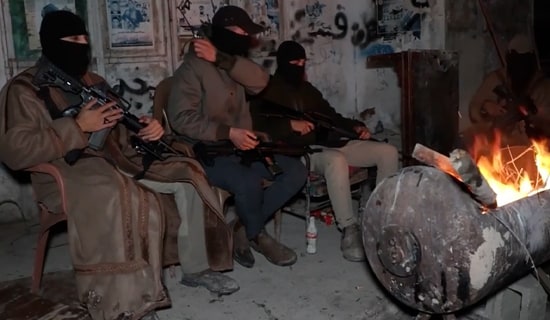
Following are excerpts from an episode of an Iranian documentary series on Hollywood cinema, featuring "Saving Private Ryan," which aired on IRINN – the Iranian News Channel on May 27, 2008
:Narrator: The concentrated efforts of the Zionist lobbies in America have led the U.S. government to be the greatest supporter of the regime occupying Jerusalem. In recent years, following the exposure of certain information, hatred towards the Zionists has developed and intensified among various sectors of society in this country. Therefore, some of the efforts of the Zionist propaganda machine are intended to improve the image of Zionism, and to paint a false picture of the historical role of the Zionists in American society.
[...]
Dr. Majid Shah-Hosseini, an Iranian film critic: [In "The Matrix"], Zion symbolizes the utopian Jewish Zionist land. These are the roots of Zionism. How come in such a popular and seemingly fictional American film, the utopia of liberty and humanity, which heralds the era of modernity – in the technical, rather than theoretical sense – is symbolized by a Zionist name – "Zion"? Moreover, names may be selected for their rhyming value. "Zion" sometimes becomes "Ryan," as in "Saving Private Ryan." They exploit even the similarity of names. The Jewish Steven Spielberg, whose previous film, "Schindler's List," reflected Zionist goals, and who turned the false story of the holocaust into an influential movie, is now making a new movie, about Private Ryan.
[...]
Murtaza Ali-Abbas Mirzai, an Iranian documentary filmmaker: In "Saving Private Ryan," one sees that they are the ultimate plunderers. The scene in which the officer puts some earth from various countries into cans was just a preview of what they are doing now – taking the land of Iraq, Afghanistan, and the European countries.
[...]
Narrator: While the blacks and other minorities protest the fact that Hollywood ignores their role in American history, but to no avail, prominent films like "Saving Private Ryan" highlight the role of Jewish soldiers. By exaggerating this role, the Zionists seem to be trying to achieve legitimacy for their post-war actions. In the military cemetery shown in the opening scene of the film, the picture has been edited to draw attention to the Jewish graves among others.
[...]
Among the more unpleasant scenes of the film are the scenes in which a Jewish soldier directs his rage towards German POWs. When he sees some German soldiers wearing jewelry with symbols of his religion, this soldier has a fit of rage and attacks them. In these scenes, the film director presents a completely sympathetic view of this soldier's rage towards the helpless POWs. It seems as if this cry of rage is the cry of Zionism validating the crimes perpetrated by Zionism after the world war.













